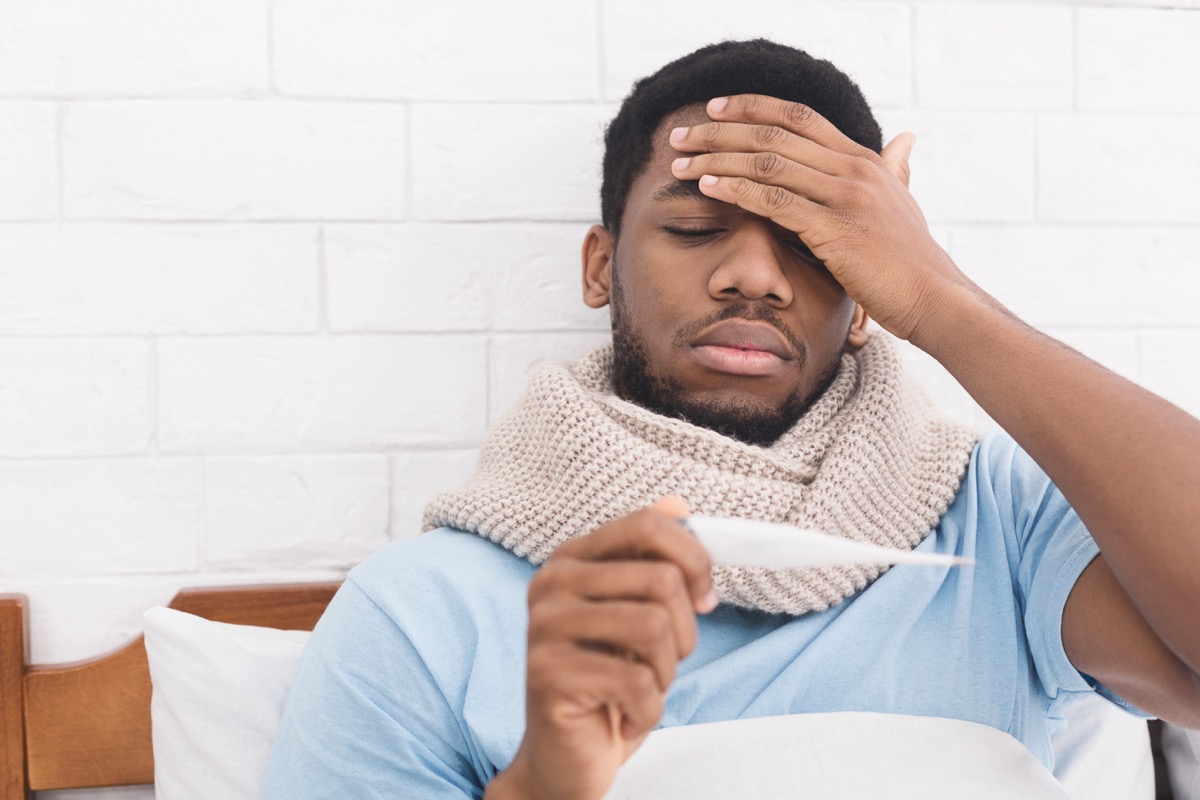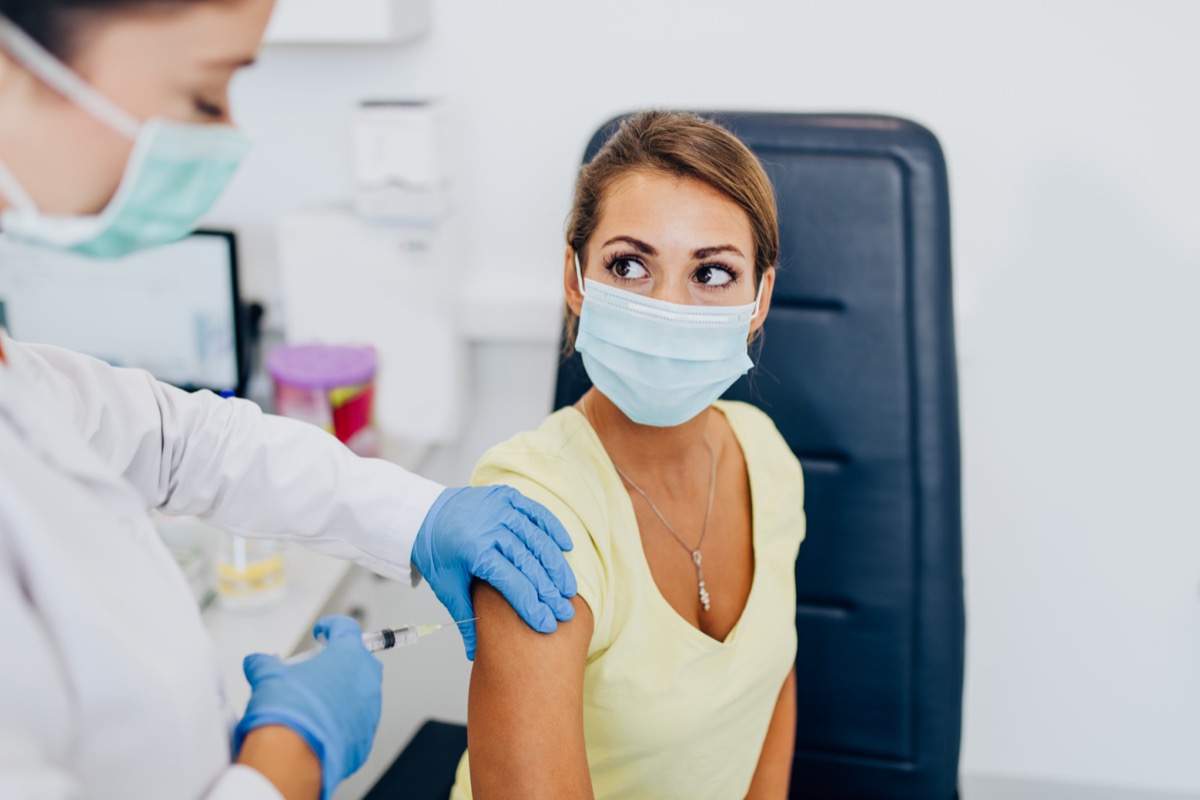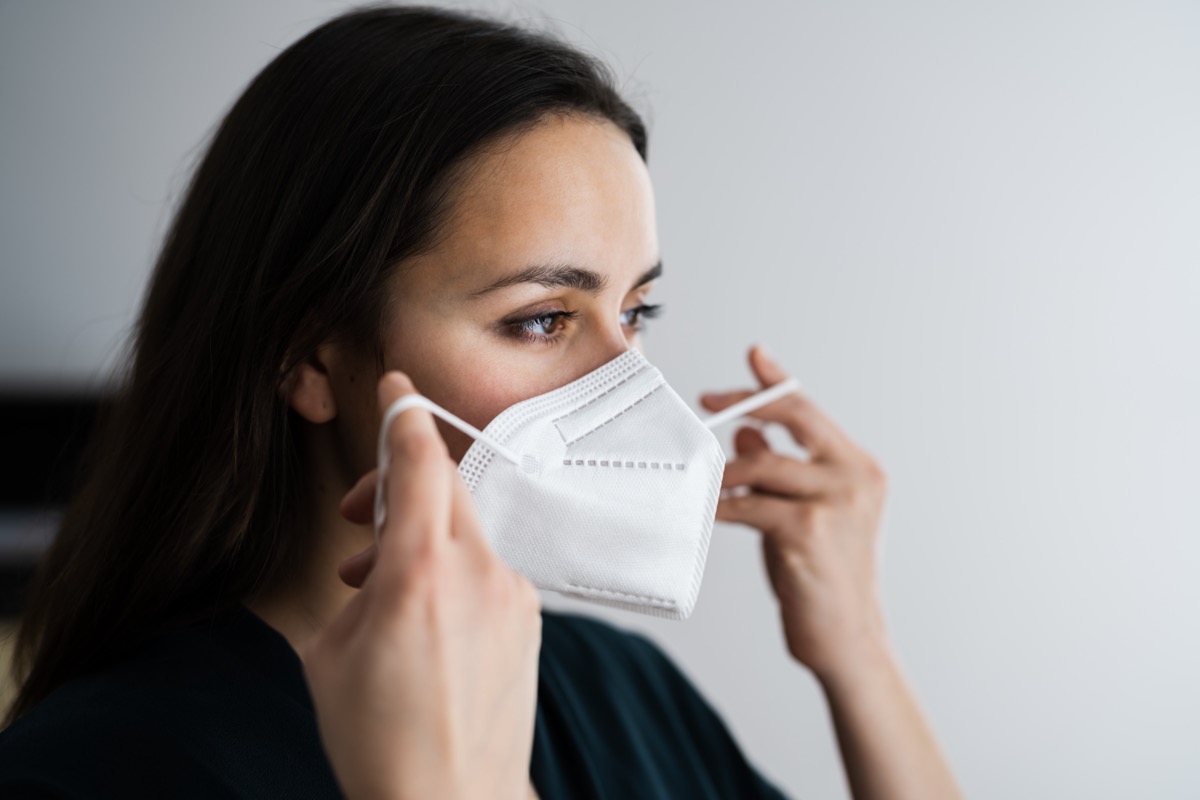The COVID-19 pandemic has been unpredictable from the start: Few epidemiologists could have envisioned this is where we’d be, more than 18 months in. But a year and a half of study has enabled scientists to learn about the virus’s patterns, particularly when it comes to initial symptoms. This is the latest research about the order in which those first physical signs appear. Read on to find out more—and to ensure your health and the health of others, don’t miss these Sure Signs You May Have Already Had COVID.


Researchers at the COVID Symptom Study are tracking the initial signs of new COVID cases via an app. They say that these are the most commonly reported early symptoms, if you’re vaccinated:
- Headache
- Sore throat
- Runny nose
- Fever
- Persistent cough
If you’ve not been vaccinated, the scientists say, symptoms are similar to the more well-known ones associated with earlier strains of COVID-19.
RELATED: Virus Expert Warns These 17 States Will Have Next Surge


“The symptoms we are seeing now are much more commonly identified with the common cold,” Dr. Andrew T. Chan, an epidemiologist and one of the COVID Symptom Study’s lead investigators, told the New York Times. “We are still seeing people presenting with a cough, but we are also seeing a higher prevalence of things like runny nose and sneezing.”
RELATED: I’m a Doctor and Here’s How to Not Catch Delta


According to the CDC, the common symptoms of COVID-19 include:
- Fever or chills
- Cough
- Shortness of breath or difficulty breathing
- Fatigue
- Muscle or body aches
- Headache
- New loss of taste or smell
- Sore throat
- Congestion or runny nose
- Nausea or vomiting
- Diarrhea
If you experience any of the symptoms, get tested for COVID-19 ASAP, even if you’ve been fully vaccinated.
RELATED: You’ll Now Need a Vaccine to Enter Here


Experts say Delta is much more transmissible than previous strains of the virus and that it causes more severe disease, is twice as likely to cause hospitalization and tends to make people sicker, quicker.
The good news: Research shows that vaccination slashes the chance of being hospitalized, developing severe disease, or dying of COVID-19. Breakthrough infections are possible, but they generally cause only mild disease. And the latest research has found that they are rare. The risk is about 1 in 5,000 per day, and maybe even lower if you take additional precautions or live in a highly vaccinated area, the New York Times reported on Tuesday: “The risks of getting any version of the virus remain small for the vaccinated, and the risks of getting badly sick remain minuscule.”
RELATED: 4 Sure Ways to Avoid Delta Now, Says Virus Expert


Follow public health guidelines and help end this pandemic, no matter where you live—get vaccinated ASAP; if you live in an area with low vaccination rates, wear an N95 face mask, don’t travel, social distance, avoid large crowds, don’t go indoors with people you’re not sheltering with (especially in bars), practice good hand hygiene, and to protect your life and the lives of others, don’t visit any of these 35 Places You’re Most Likely to Catch COVID.